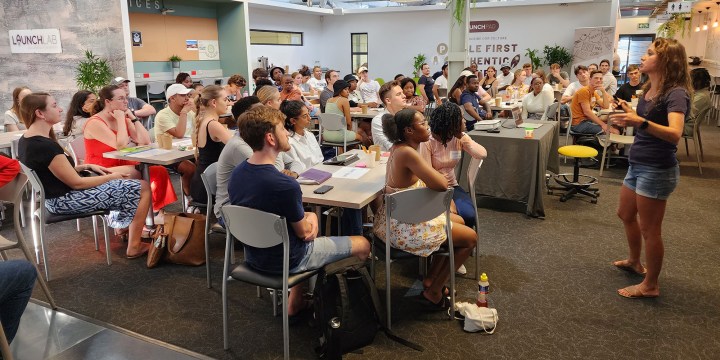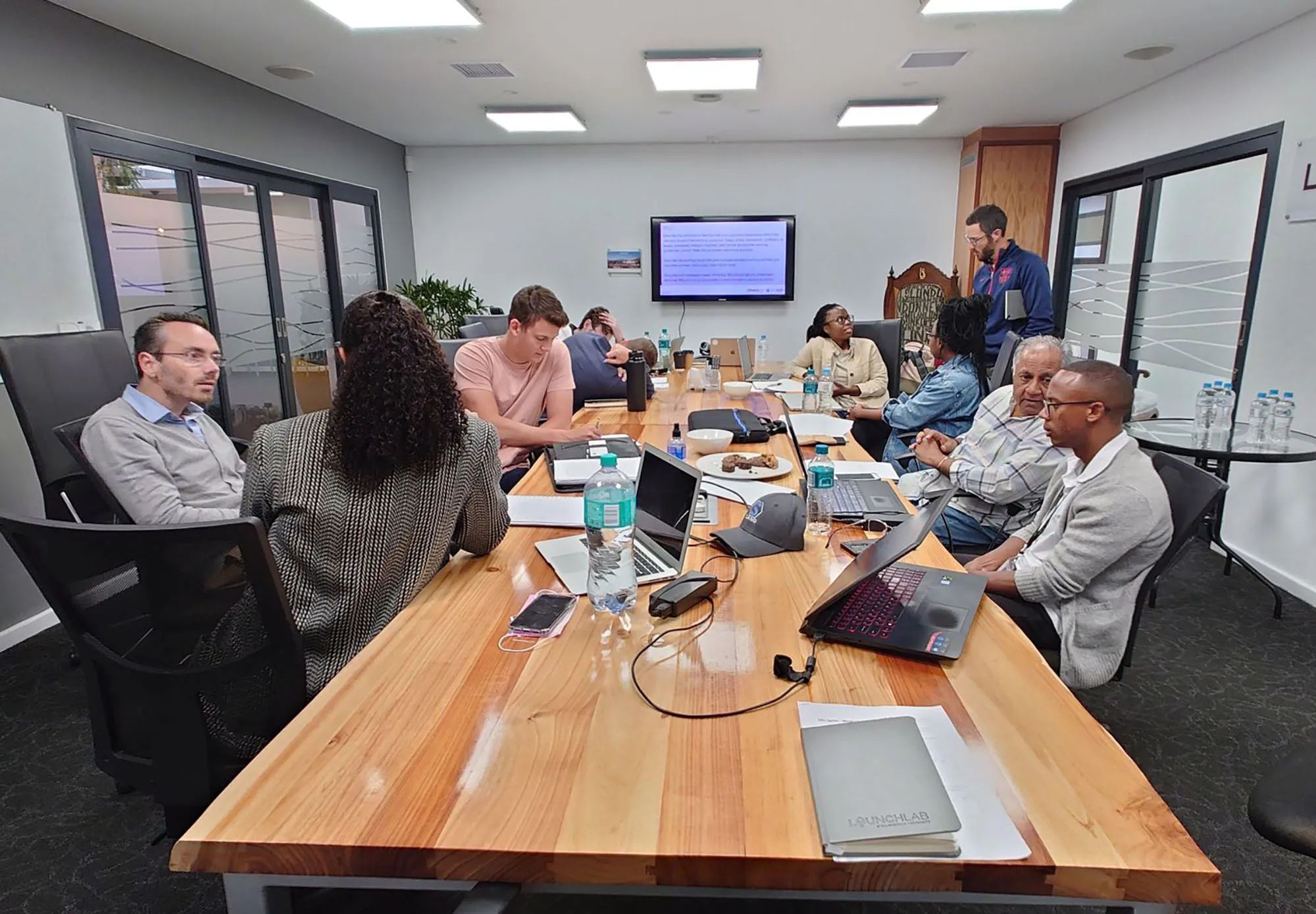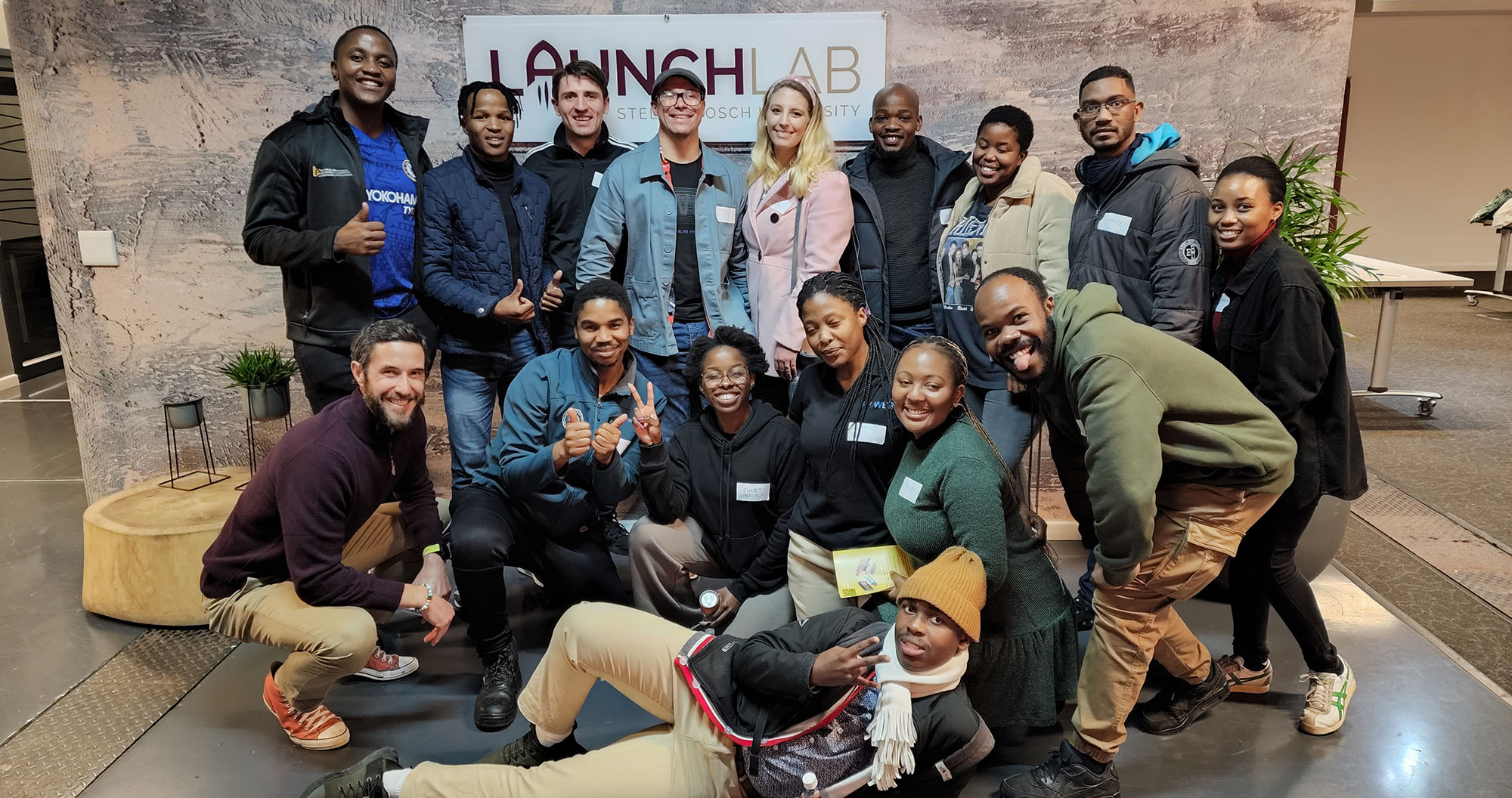BUSINESS INCUBATOR
Stellies LaunchLab works to stop valuable academic research from gathering dust

Across the world, academic research is just waiting to be unlocked. At Stellenbosch University LaunchLab, universities and climate entrepreneurs can get help to build businesses out of great ideas.
Universities can be so much more than centres of learning. Across the world, academic institutions at the forefront of research gather vast amounts of intellectual property that could benefit humanity and shape the future. And yet, instead of being vented publicly to attract commercial applications, their research often gathers dust. These are opportunities just waiting to be unleashed.
South African universities, at the forefront of research in Africa, are primed to produce more commercial ideas. However, while South African academic institutions produce only about 14% of the country’s patents, they eclipse those produced by companies, industry bodies, and state research institutions like the CSIR and the Medical Research Council, says Joshua Romisher, the CEO of SU LaunchLab — an innovation hub and business incubator in Stellenbosch.
Set up a decade ago, SU LaunchLab serves universities and climate entrepreneurs in Africa, working on a range of projects. It is the top university-affiliated business builder on the continent, serving as a commercial partner that helps technical experts transform their intellectual property into high-impact, scalable start-ups. Through its ClimateLab, it works with universities by focusing on clean off-grid solutions, e-mobility, food-tech and agri-tech.
Academic research is often not applied in the real world, or translated into patents, innovations and commercial enterprises, which is a missed opportunity — especially in a developing country such as South Africa, explained Romisher.
American by birth, Romisher is a former investment banker.

The Ignite business-building programme in action. (Photo: Supplied)
“In 2013, I decided I wanted to go full-time in entrepreneurship. I’ve done a lot of travel in my life and really wanted to build businesses at this nexus of building viable companies that really solve customer problems, but at the same time, that solve pretty difficult social issues as well.
“I saw this massive opportunity for the private sector to lead the charge in terms of solving hard problems, but also building businesses that can be scalable and profitable.”
In 2014, Romisher went back to business school and decided to move to Africa. At first, the news wasn’t well received by his wife, Abby.
“I said, ‘Hey, I’m moving to Africa.” And she said, ‘Hey, I’m not.’”
After commuting between Africa and the West Coast of the US for four years, and spending a significant time in Kenya, Tanzania, Ivory Coast, Rwanda, Nigeria and Zambia, building companies focused on solving solar energy distribution problems, the Romisher-Sterns found their happy place and settled in Stellenbosch.
“At that point, I’d been an entrepreneur for a while, built a couple of companies, but I really saw this need to help companies get to scale in Africa. It’s an early ecosystem. It’s a lot harder to build businesses down here. There are a lot more social things to try to figure out.”
Read more in Daily Maverick: A patent injustice — why SA’s cancer activists are stuck in an endless loop
A mentor advised that he look at entrepreneurial ecosystems around the world to see how they develop. In cities like Tel Aviv, San Francisco, London and Santiago, what stood out is that they’re all built around world-class universities.
Universities are at the heart of entrepreneurial ecosystems and innovation ecosystems all around the world. Africa has some great universities, especially South Africa, he said, but their potential for innovation has not been utilised the way it is done in the Global North.
In 2019, the university approached Romisher to take over as CEO of the SU LaunchLab. At the time, it was not yet a university incubator but rather a funder for startups through its association with Nedbank.

A community event hosted by Stellenbosch University’s LaunchLab. (Photo: Supplied)
“What we wanted to do when we got to SU LaunchLab about four years ago was really to pivot it into the university because the university is our biggest asset; it’s our biggest resource. There are all these incredibly smart people, who are super passionate. They’re really hungry [to succeed], they just don’t know where to start and they don’t know how to get on the entrepreneurial path.”
Today, the SU LaunchLab coworking space has 26 different companies, with workshops and events hosted almost daily.
Read more in Daily Maverick: In an uncertain and rapidly changing world, research universities play a critical role in building a better future
“We believe companies need a lot of help to build these businesses. And so we work with teams for over a year; some of them we worked with for a few years, to really help them grow the business. In South Africa, the sectors they have focused on have been e-mobility, food and agri-tech, where we helped farmers increase their yields and increase their income.”
Four years into this journey and the team at SU LaunchLab is excited to see the project take hold and build this community ecosystem. Hopefully, Romisher says, by 2050, when Africa is the most populous continent in the world, people will look at Africa and say: “Wow, like these guys, these guys did it. They leapfrogged. They worked hard and looked at where they are in the world. I think that’s possible. But it does have to start now.” DM168
This story first appeared in our weekly DM168 newspaper, which is available countrywide for R25.
What LaunchLab offers
SA LaunchLab offers a variety of programmes and resources to help startups and entrepreneurs succeed, including:
- Business incubation: SU LaunchLab’s ResNova programme, which currently focuses on universities only, provides a range of support services to early-stage businesses, including mentorship, access to funding opportunities, and office space.
- Acceleration programmes: The Ignite (university) and ClimateLab (pan-African) accelerator programmes run throughout the year, providing startups with intensive training, mentorship and access to funding.
- Business support services: The hub provides a range of business support services, including legal advice, financial management and market research.
- Networking events: SU LaunchLab hosts regular networking events and workshops to connect entrepreneurs with potential investors, partners, and customers. At a recent event, SU LaunchLab hosted four biotech startups — Fluorobiotech, De Novo Dairy, Immobazyme, and Mogale Meat — that shared their insights and experiences in biotech innovation and its application in the food and beverage industry. The event, co-hosted with the OneBio Venture Studio and FoodHack Cape Town, explored the latest developments in biotech, including the production of proteins.
- Ideation workshops, such as the “How to think differently” series which teaches students, researchers, corporates, etc the ways of the entrepreneurial mindset even if they don’t aim to start a business. This includes storytelling, design thinking, ideation, etc.
Access to funding: SU LaunchLab provides startups with access to funding opportunities through partnerships with investors. It invests in four to six startups per year, and offers financial and human capital support. DM


















I’ve always lamented the neglect of all that research material that’s gathering dust on university shelves after hard earned degrees have been celebrated with ceremonies. I’ve never known what to do with that problem and as a pensioner, there isn’t much of that energy. I love this story.